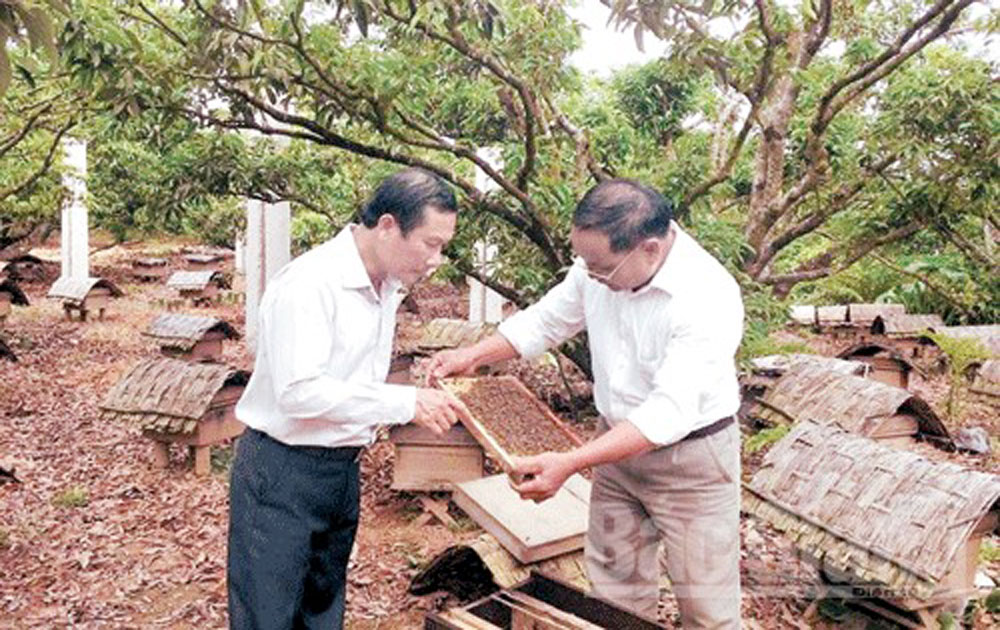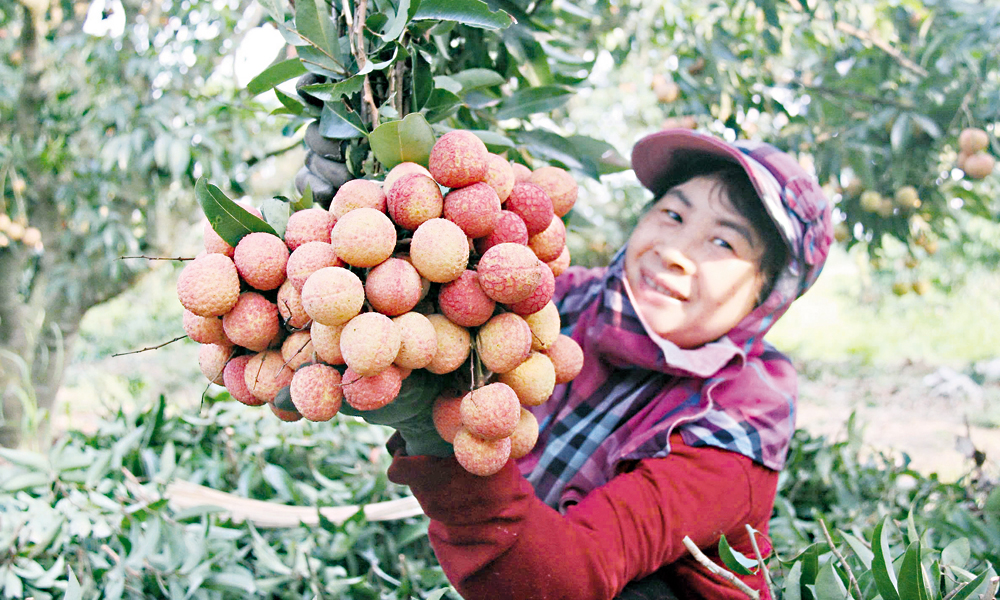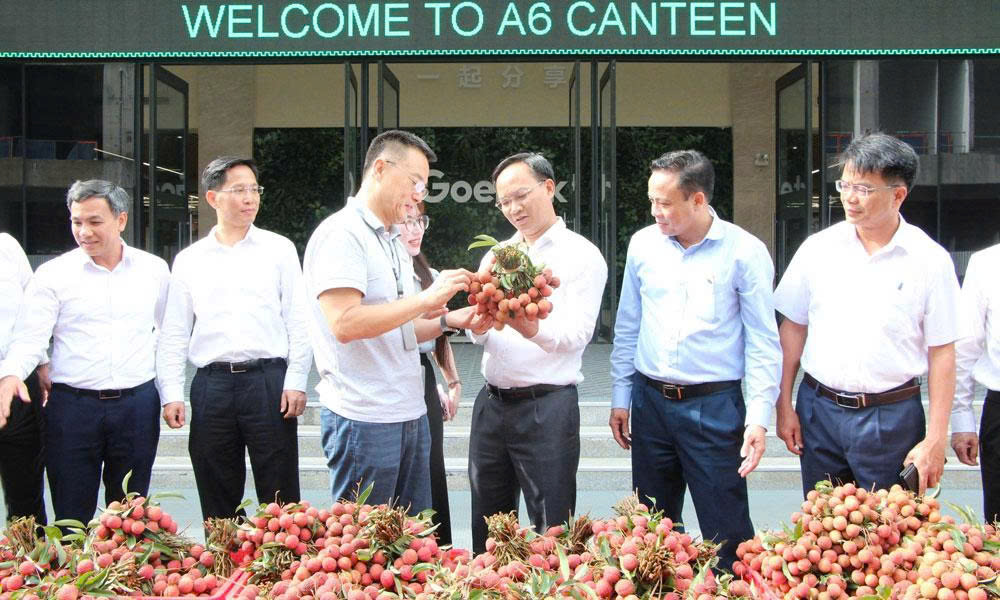Building brand name for Son Dong forest honey
 |
|
A member of the Son Dong Organic Honey Cooperative examines his bee swarms. Photo: Viet Hung. |
Enormous potential
As the bees had been raised spontaneously, local farmers saw low honey productivity and the product was only consumed locally. Recognising available potential, the Son Dong district People’s Committee decided to establish Son Dong Organic Honey Cooperative in Tuan Dao commune, which is home to the largest number of bee farming households. The cooperative creates opportunities for beekeepers to meet and exchange techniques and experience.
Nguyen Van Khoi from Lam Tuan village (Tuan Dao commune) is an excellent example. Joining the cooperative, Tuan was provided with beekeeping and multiplication techniques from forest bees. His family now has 150 swarms of bees and earns an average of 200-300 million VND (8,800-13,200 USD) per year.
Nguyen Van Hoan in Chao village (
Taking the advantage of local natural conditions with forest land accounting for over 80 percent of the district’s areas, especially Tay Yen Tu Preservation Zone housing 800 kinds of flora, many households chose beekeeping as a key economic development orientation. Families in Tuan Dao,
Currently, over 16,000 households in the district are keeping bees, with a total annual output of 130-140 tonnes of honey. Although honey is a specialty in the district, production and consumption remain modest, failing to fully tap its potential.
In 2015, the district People’s Committee filed a dossier, asking the Intellectual Property Department under the Ministry of Science and Technology to grant the collective brand name “Son Dong forest honey” for the Son Dong Organic Honey Cooperative’s products.
To help honey fragrance spreads out
Although the Son Dong Organic Honey Cooperative was granted the collective brand name, it has yet to announce widely and lacked funds for expanding its infrastructure facilities. Therefore, the cooperative is still struggling to bring its products to the market.
The cooperative’s membership has increased from 29 to 68 at present, with more than 5,100 bee swarms, accounting for about 30 percent of the total swarms in the district. Recently, the cooperative has organised many training courses to provide new techniques for local beekeepers and assisted those in need to develop their bee swarms.
According to the cooperative’s director Nguyen Duc Minh, the products are mostly sold by its household members while tradesmen only purchase when they have demand. Efforts by the cooperative and its members are not enough to expand the market, Minh said, urging for more support from the district’s People’s Committee, particularly in building facilities and bottling.
District authorities should assist local beekeepers in marketing and expanding markets to raise their incomes, he added.
The local beekeeping industry is lacking sustainability as local farmers multiply the bees by themselves. The district’s People’s Committee has assigned the Division of Agriculture and Rural Development to encourage more farmers to join the cooperative and devise support mechanisms for them. The division was also tasked to multiply breed quality bees.
“When the cooperative’s scale is big enough, we will ask the People’s Committee to fund the construction of production facilities and invest in technology to bring the products to the market”, the division’s head Hoang Thi Ninh said. In the long run, beekeepers will have to actively learn hi-tech beekeeping techniques and follow food safety standards that satisfy VietGAP and GMP criteria, in order to build and protect the brand name of local honey products, she noted.
Sy Quyet – Xuan
 Bắc Ninh
Bắc Ninh









Reader's comments (0)